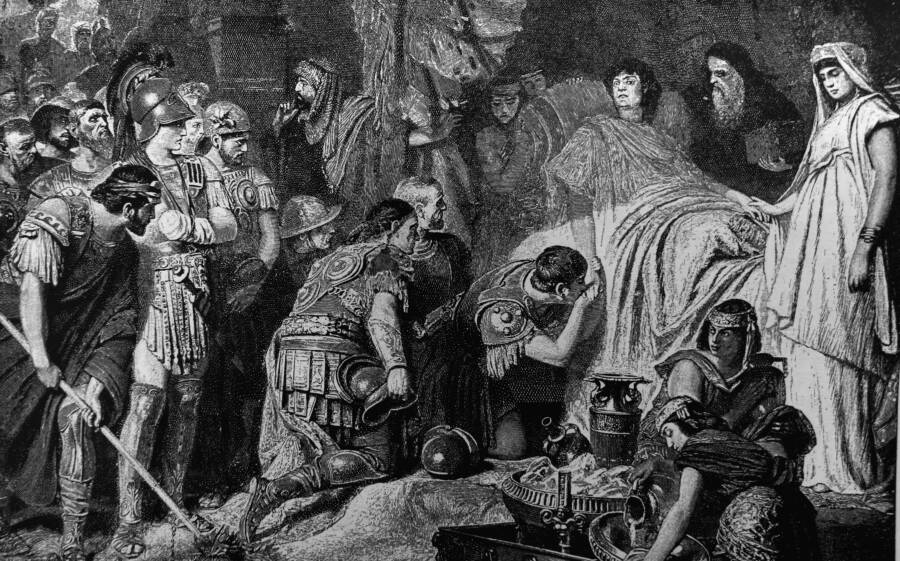Royal Deaths: A Comprehensive Look At The Lives And Legacies
Throughout history, royal deaths have captured the imagination of people around the globe. The lives of monarchs and their untimely or significant deaths often leave lasting legacies that shape nations and cultures. Whether it is the dramatic circumstances surrounding their passing or the impact their reign had on history, these stories continue to fascinate us.
From ancient times to modern-day monarchies, the deaths of kings, queens, and other members of royal families have been chronicled in detail. These events not only mark the end of an era but also serve as a reminder of the impermanence of power and the inevitability of change. This article delves into the fascinating world of royal deaths, exploring the historical significance, cultural implications, and enduring legacies of these pivotal moments.
In this article, we will explore various aspects of royal deaths, including the circumstances surrounding them, the impact they had on their respective nations, and how these events continue to influence modern perceptions of monarchy. By examining specific cases and analyzing historical patterns, we aim to provide a comprehensive understanding of this intriguing subject.
Read also:Gurnee Il Forecast Your Ultimate Guide To Weather Updates
Table of Contents
- Introduction to Royal Deaths
- Historical Context of Royal Deaths
- Famous Royal Deaths
- Causes of Death Among Royalty
- Impact on Nations
- Cultural Significance
- Legacy of Royal Deaths
- Modern Perspective on Royal Deaths
- Memorials and Commemorations
- Conclusion
Introduction to Royal Deaths
Royal deaths are more than just historical events; they are turning points in the narrative of nations. The passing of a monarch often signifies the end of an era, bringing about changes in governance, culture, and society. These deaths have been documented in great detail, providing valuable insights into the lives and reigns of those who wore the crown.
Significance of Royal Deaths
The significance of royal deaths extends beyond the immediate political implications. They often spark debates about succession, power dynamics, and the role of monarchy in modern times. The way these deaths are handled can also reflect the values and priorities of the society at the time.
Historical Context of Royal Deaths
Understanding the historical context of royal deaths is crucial to appreciating their broader implications. From the medieval period to the present day, the circumstances surrounding these events have evolved, reflecting changes in societal norms and technological advancements.
Medieval Royal Deaths
In medieval times, royal deaths were often shrouded in mystery and intrigue. Battles, assassinations, and illnesses were common causes, and the lack of medical knowledge at the time meant that many deaths were sudden and unexpected. These events frequently led to power struggles and conflicts over succession.
Famous Royal Deaths
Some royal deaths have become legendary due to their dramatic nature or the lasting impact they had on history. Below are a few notable examples:
- Henry VIII of England: Known for his six marriages, Henry VIII's death in 1547 marked the end of a tumultuous reign that reshaped the English Church.
- Maria Theresa of Austria: Her death in 1780 was mourned across Europe, as she was a powerful and reform-minded ruler who strengthened the Habsburg monarchy.
- Princess Diana: The tragic death of Princess Diana in 1997 shocked the world and highlighted the intense media scrutiny faced by modern royals.
Causes of Death Among Royalty
The causes of death among royalty have varied throughout history, reflecting the medical knowledge and living conditions of the time. While illness and old age are common factors, other causes such as war, assassination, and accidents have also played a significant role.
Read also:Comprehensive Guide To Setting Up Ssh On Iot Devices And Routers
Modern Medical Advances
In recent centuries, advances in medicine have improved the life expectancy of royals, but this has not eliminated the risks associated with their high-profile lives. Stress, mental health issues, and the pressures of public life continue to pose challenges.
Impact on Nations
The death of a monarch can have profound effects on the nation they ruled. It may lead to changes in government, shifts in public sentiment, and even international repercussions. The way a nation responds to such an event can reveal much about its identity and values.
Succession and Stability
One of the most immediate concerns following a royal death is the issue of succession. Ensuring a smooth transition of power is vital for maintaining stability and avoiding conflict. This process can be complicated by competing claims and political maneuvering.
Cultural Significance
Royal deaths often carry deep cultural significance, symbolizing the end of an era and the beginning of a new chapter. They can inspire art, literature, and other forms of cultural expression, preserving the memory of the deceased and their contributions to society.
Public Mourning and Rituals
Public mourning rituals have long been a part of royal funerals, allowing citizens to pay their respects and come to terms with the loss. These ceremonies often reflect the cultural and religious traditions of the nation, creating a shared experience for the people.
Legacy of Royal Deaths
The legacy of royal deaths is multifaceted, encompassing both the personal achievements of the deceased and the broader impact of their reign. These legacies can shape the future of nations, influencing policies, institutions, and public opinion for generations.
Monuments and Memorials
Monuments and memorials dedicated to deceased royals serve as tangible reminders of their contributions and the values they represented. These structures often become sites of pilgrimage and reflection, connecting the past with the present.
Modern Perspective on Royal Deaths
In today's world, royal deaths are viewed through a different lens, shaped by media coverage and global connectivity. The role of social media in disseminating information and fostering public engagement has transformed the way people experience and remember these events.
Media Coverage and Public Reaction
Modern media outlets provide extensive coverage of royal deaths, offering insights into the lives of the deceased and the implications of their passing. This coverage can influence public perception and shape the narrative surrounding these events.
Memorials and Commemorations
Memorials and commemorations play an essential role in honoring the memory of deceased royals. These efforts ensure that their legacies continue to inspire future generations and remind us of the importance of history in shaping our present and future.
Annual Observances
Many nations observe annual commemorations to honor their former monarchs, providing an opportunity for reflection and remembrance. These events often involve ceremonies, parades, and educational programs designed to engage the public and preserve historical knowledge.
Conclusion
Royal deaths are more than just historical events; they are moments that define nations, cultures, and societies. By examining the lives and legacies of those who have passed, we gain a deeper understanding of the complexities of power, tradition, and change. As we continue to explore this fascinating subject, it is important to recognize the enduring impact these events have on our world.
We invite you to share your thoughts and reflections in the comments section below. Additionally, feel free to explore other articles on our site that delve into related topics. Together, let us celebrate the rich history and enduring legacies of royal deaths.
Data Sources: Encyclopedia Britannica, History.com, The Times.


